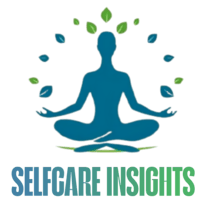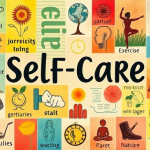
The Ultimate Self-Care Guide to Starting the New Year Right
Setting Intentions for the New Year
As we approach the beginning of a new year, many of us feel compelled to set intentions to guide our path forward. The act of setting intentions allows us to align our actions with our values and aspirations, fostering a sense of purpose and direction in our lives. Whether it’s focusing on personal growth, cultivating healthier habits, or pursuing professional goals, setting clear intentions can help us stay motivated and accountable throughout the year.
When setting intentions for the new year, it’s important to be thoughtful and specific about what we hope to achieve. Rather than vague resolutions, setting concrete intentions that are meaningful to us can increase our chances of success and fulfillment. By taking the time to reflect on what truly matters to us and setting intentions that resonate with our values, we can create a roadmap for the year ahead that is both purposeful and rewarding.
Creating a Self-Care Routine
Taking care of ourselves is crucial for maintaining overall well-being. Establishing a self-care routine involves identifying activities that help promote relaxation, reduce stress, and enhance our physical and mental health. This may include practices such as meditation, exercise, spending time in nature, journaling, or engaging in hobbies that bring joy and fulfillment.
Self-care is not a one-size-fits-all concept, and it’s essential to personalize your routine based on your preferences and needs. By dedicating time each day to prioritize self-care, you are investing in your own health and happiness. Remember, self-care is not selfish; it is a necessary practice for maintaining a balanced and fulfilling life.
Prioritizing Mental Health
In today’s fast-paced world, prioritizing mental health is essential. It is crucial to take the time to check in with ourselves, acknowledge our emotions, and address any stress or anxiety we may be experiencing. By making mental well-being a top priority, we can better cope with the challenges that come our way and lead a more fulfilling life.
Practicing self-care, such as engaging in activities that bring us joy, staying connected with loved ones, and seeking professional help if needed, are all ways to prioritize our mental health. Taking small steps each day to nurture our minds and emotions can have a significant impact on our overall well-being. Remember, it’s okay to prioritize yourself and your mental health – you deserve to feel happy and balanced.
Establishing Healthy Habits
Making healthy choices is essential for overall well-being. Incorporating regular exercise into your routine can boost your physical health and improve your mood. Whether it’s going for a brisk walk, taking a yoga class, or hitting the gym, finding activities you enjoy can make staying active a fun and rewarding part of your day.
In addition to physical activity, nourishing your body with nutritious foods is key to establishing healthy habits. Opt for whole, unprocessed foods like fruits, vegetables, lean proteins, and whole grains to fuel your body and promote optimal health. Making small changes, such as swapping out sugary snacks for healthier alternatives or cooking meals at home instead of eating out, can make a big difference in how you feel both physically and mentally.
• Regular exercise can boost physical health and improve mood
• Activities like brisk walks, yoga, or gym sessions can make staying active enjoyable
• Nourishing your body with nutritious foods is essential for healthy habits
• Opt for whole, unprocessed foods like fruits, vegetables, lean proteins, and whole grains
• Small changes like swapping sugary snacks for healthier options or cooking at home can have a big impact on overall well-being
Practicing Mindfulness
Mindfulness is the practice of being fully present and aware of your thoughts, emotions, and surroundings without judgment. It involves focusing on the present moment and observing your experiences without getting caught up in them. By incorporating mindfulness into your daily routine, you can cultivate a sense of calm and clarity in your mind.
One way to practice mindfulness is through meditation. Taking a few minutes each day to sit quietly and focus on your breath can help you become more attuned to the present moment. Additionally, you can bring mindfulness into everyday activities such as eating, walking, or even washing dishes by paying full attention to each sensation and detail.
Finding Balance in Life
To find balance in life, it’s essential to prioritize self-care and well-being. This means making time for activities that bring joy and relaxation, such as reading a book, going for a walk, or practicing mindfulness. It’s important to listen to your body and mind, recognizing when you need to take a step back and recharge. By incorporating self-care into your daily routine, you can better manage stress and maintain a sense of equilibrium.
In addition to self-care, finding balance in life also involves setting boundaries and managing commitments effectively. Learning to say no when necessary and not overextending yourself is crucial for maintaining a healthy balance. By being intentional with your time and energy, you can ensure that you are focusing on what truly matters to you and avoiding burnout. Remember that balance looks different for everyone, so it’s essential to find what works best for you and make it a priority in your daily life.
Setting Realistic Goals
Setting realistic goals is crucial for success in any aspect of life. When setting goals, it’s essential to be honest with yourself about your abilities and limitations. Pushing yourself too hard or aiming for unattainable objectives can lead to frustration and burnout. By setting realistic goals, you increase your chances of staying motivated and making steady progress towards achieving them.
It’s important to break down your goals into smaller, more manageable tasks. This approach not only makes your goals feel more achievable but also helps you track your progress more effectively. Celebrate each small victory along the way to keep yourself motivated and on track towards reaching your ultimate goal. Remember, setting realistic goals is not about aiming low, but rather about setting yourself up for success by making goals that are challenging yet attainable.
Nurturing Relationships
Building and maintaining meaningful relationships is essential for our overall well-being. Taking the time to connect with loved ones, whether it’s through a heartfelt conversation, a simple gesture, or spending quality time together, can significantly improve our mental and emotional health. When we prioritize nurturing our relationships, we create a support system that uplifts us during challenging times and celebrates with us during moments of joy.
Communication is key in nurturing relationships. It’s important to express our thoughts and emotions openly and honestly, while also actively listening to others. By showing empathy, understanding, and respect towards our loved ones, we strengthen the bond we share and foster a sense of trust and connection. When we invest in building and nurturing positive relationships, we not only enrich our own lives but also contribute to the happiness and well-being of those around us.
Getting Enough Sleep
Sufficient sleep is essential for overall well-being and optimal functioning. It is recommended that adults aim for 7-9 hours of quality sleep each night to support cognitive performance, mood regulation, and physical health. Lack of adequate sleep can lead to irritability, poor concentration, weakened immune system, and increased risk of chronic health conditions.
Establishing a consistent bedtime routine, creating a comfortable sleep environment, and limiting caffeine and electronic device usage before bed can contribute to better sleep quality. Prioritizing rest and aiming to maintain a regular sleep schedule can significantly impact your energy levels and productivity throughout the day. Remember, getting enough sleep is not a luxury but a necessity for a healthy and balanced lifestyle.
Eating Well
One of the essential components of maintaining a healthy lifestyle is eating a well-balanced diet. It is important to incorporate a variety of fruits, vegetables, whole grains, lean proteins, and healthy fats into your meals. By focusing on nutrient-dense foods and moderating the intake of processed and high-sugar items, you can fuel your body with the necessary nutrients it needs to function optimally.
In addition to choosing nutritious foods, it is crucial to pay attention to portion sizes and mindful eating practices. Eating slowly, savoring each bite, and listening to your body’s hunger and fullness cues can help prevent overeating and promote better digestion. By being mindful of what and how much you eat, you can cultivate a healthier relationship with food and support your overall well-being.
Staying Active
Regular physical activity plays a crucial role in maintaining overall health and well-being. Engaging in activities such as walking, jogging, swimming, or biking not only helps in keeping the body fit but also improves mental clarity and mood. Setting aside time each day for some form of exercise can lead to increased energy levels and a sense of accomplishment.
Incorporating a variety of movements and exercises into your routine can help prevent boredom and target different muscle groups. Whether it’s a high-intensity workout at the gym, a relaxing yoga session, or simply taking the stairs instead of the elevator, finding activities that you enjoy can make staying active feel less like a chore and more like a rewarding lifestyle choice.
Taking Breaks
In today’s fast-paced world, taking breaks is often seen as a luxury rather than a necessity. However, incorporating regular breaks into your daily routine is essential for maintaining productivity and overall well-being. Whether it’s a short walk outside, a few moments to meditate, or simply stepping away from your workspace, these breaks allow your mind to recharge and refocus.
Research has shown that taking breaks throughout the day can improve concentration, creativity, and problem-solving abilities. By giving yourself permission to pause and rest, you are actually setting yourself up for greater success in the long run. So, next time you feel overwhelmed or stuck, remember the power of taking a break – it might just be the key to unlocking your full potential.
Unplugging from Technology
In a world where technology dominates much of our daily lives, taking intentional breaks from screens and devices can be crucial for our overall well-being. Constant exposure to notifications, social media, and digital content can lead to feelings of overwhelm and distraction. By unplugging from technology, even for brief moments throughout the day, we create space to reconnect with ourselves and the world around us.
Setting boundaries around technology use can help us establish a healthier relationship with screens. This can involve designating tech-free zones in our homes, setting specific times to check emails and social media, or engaging in activities that don’t involve screens. By consciously choosing when and how we interact with technology, we empower ourselves to be more present, mindful, and in control of our digital consumption.
Practicing Gratitude
Practicing gratitude is a simple yet powerful way to shift our perspective and cultivate a positive mindset. It involves acknowledging and appreciating the good things in our lives, both big and small. By taking the time to express gratitude for the people, experiences, and opportunities that bring joy and meaning to our lives, we can enhance our overall sense of well-being and fulfillment.
Gratitude can help us focus on the present moment and find contentment in what we have, rather than always striving for more. It allows us to recognize the abundance that surrounds us and fosters a sense of connection and appreciation for the world around us. Whether through journaling, meditation, or simply taking a moment to express thanks, integrating gratitude into our daily routine can have a profound impact on our mental and emotional well-being.
Embracing Self-Compassion
Self-compassion is about treating yourself with kindness and understanding, just as you would a dear friend in need. It involves acknowledging your struggles and imperfections without judgment or self-criticism. By cultivating self-compassion, you can build a stronger sense of resilience and inner peace in the face of challenges.
Practicing self-compassion also involves taking care of your emotional well-being and offering yourself the same empathy and support you would give to others. This means being mindful of your own needs and responding with compassion and care, nurturing a positive relationship with yourself. In a world that often emphasizes self-criticism and high expectations, embracing self-compassion can be a powerful tool for enhancing your mental and emotional well-being.
Setting Boundaries
Setting boundaries is essential for maintaining healthy relationships and promoting emotional well-being. By clearly communicating your limits and expectations, you can create a sense of respect and understanding in your interactions with others. Setting boundaries empowers you to prioritize your needs and values without feeling guilty or overwhelmed.
When setting boundaries, it’s important to be assertive yet compassionate in your approach. Remember that it’s okay to say no and assert your own needs even if it may disappoint others. Boundaries help prevent burnout and foster a sense of self-respect, leading to more fulfilling and authentic connections with those around you.
Seeking Support
Building a support system is crucial for overall well-being. It’s important to surround oneself with individuals who offer encouragement, understanding, and a listening ear. Seeking support can come in various forms, whether it’s confiding in a trusted friend, seeking guidance from a mentor, or joining a support group to connect with others facing similar challenges. By allowing ourselves to be vulnerable and open to receiving help, we can navigate through difficult times with more resilience and strength.
Additionally, professional support through therapy or counseling can provide valuable insights and tools for coping with stress and improving mental health. A trained therapist can offer unbiased perspectives and personalized strategies to address specific concerns or obstacles. Remember, asking for support is not a sign of weakness but rather a courageous step towards self-care and personal growth.
Trying New Things
Trying new things is an essential component of personal growth and self-discovery. When we step outside of our comfort zones and explore unfamiliar territory, we open ourselves up to new opportunities and experiences that can enrich our lives in unexpected ways. Whether it’s trying a new hobby, visiting a new place, or learning a new skill, the act of embracing novelty can spark creativity, boost confidence, and foster a sense of adventure.
Embracing new challenges can be daunting, but the rewards often outweigh the initial apprehension. By pushing ourselves to try new things, we cultivate resilience, adaptability, and a willingness to embrace change. Stepping into the unknown can help us break free from stagnation, broaden our perspectives, and cultivate a sense of curiosity and wonder about the world around us.
Reflecting on Progress
As we journey through life, it’s essential to pause and reflect on the progress we’ve made. Taking the time to look back on our accomplishments, no matter how big or small, can provide us with a sense of fulfillment and motivation to continue moving forward. By acknowledging the steps we’ve taken and the hurdles we’ve overcome, we can gain a clearer perspective on our path and appreciate the growth we’ve experienced.
Reflection allows us to assess our goals, actions, and decisions, enabling us to learn from past experiences and make necessary adjustments for the future. It’s a valuable tool that helps us stay on track and stay aligned with our aspirations. Whether we celebrate our victories or reflect on our setbacks, each moment of reflection empowers us to embrace our journey with gratitude and resilience.
Celebrating Achievements.
As we journey through life, it is important to take moments to acknowledge and celebrate our achievements, no matter how big or small they may seem. By recognizing our accomplishments, we not only boost our self-confidence and self-worth but also motivate ourselves to keep progressing towards our goals. Reflecting on the milestones we have reached reminds us of our capabilities and strengths, instilling a sense of pride in our hard work and dedication.
Celebrating achievements can act as a form of positive reinforcement, reinforcing the belief that we are capable of overcoming challenges and succeeding in our endeavors. It allows us to bask in the joy of our accomplishments and serves as a source of inspiration for further growth and development. By taking the time to revel in our triumphs, we cultivate a mindset that is focused on progress and resilience, paving the way for continued success in our future endeavors.











